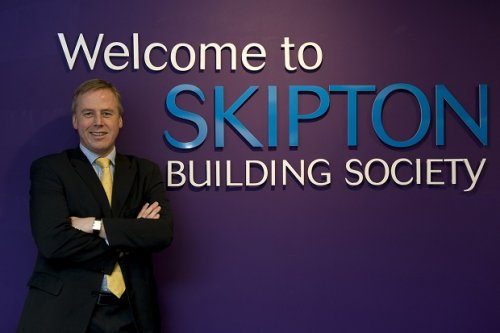Skipton Building Society’s pre-tax profit falls by £32.4m despite membership rise

Skipton Building Society has seen its pre-tax profits slump from £104.7m to £72.3m.
The business released the figures today as part of its results for the first half of 2019. For the same period, the building society also saw total income drop from 369.9m for the six months ending on June 30 2018, to 354.8m this year.
However, the company has highlighted continued growth in its membership, a 4% increase in its savings balances and says it has continued to pay above market average rates to its savers.
The Group’s gross lending of £2.5bn was 43% higher than the same period in 2018.
David Cutter, Skipton’s Group Chief Executive, said: “I’m pleased to report a further increase in the Society’s membership, and strong growth in both mortgage and savings balances.
“Profitability remains good but the decline in net interest margin is reflective of intense competition in the mortgage market, and more latterly in the savings market.
“An 8% reduction in house sales reported by Connells estate agency is also reflective of a subdued housing market, but the diversification and resilience of Skipton’s business model has contributed to a further improvement in the Society’s very strong capital ratios.”
The building society helped 14,641 homeowners (six months ended 30 June 2018: 10,855) to purchase or remortgage their properties, including 2,640 first time buyers (six months ended 30 June 2018: 2,078) and 4,619 buy-to-let borrowers (six months ended 30 June 2018: 3,409).
It stressed continued growth in membership, with member numbers increasing by 20,100 to 1,030,526 (31 December 2018: 1,010,426).
The business stated: “The decrease in total profit is predominantly in the Mortgages and Savings division, which can be attributed primarily to fair value losses of £12.5m relating to our equity release portfolio which is closed to new business (six months ended 30 June 2018: fair value gains of £8.1m).
“The fair value losses are driven by changes in market expectations of long term interest rates, inflation and house price growth.
“The Group net interest margin was 1.02% (six months ended 30 June 2018: 1.14%; year ended 31 December 2018: 1.09%); the decrease is a reflection of the intensely competitive mortgage and savings markets, placing increased pressure on margins.”
In his outlook for the business, Cutter added: “The more competitive mortgage and savings environment coincides with a continuous period of increased political uncertainty, as the UK is in the midst of withdrawing from the European Union.
“Should there be a no-deal Brexit we would not expect an immediate significant impact on the Society but we would be cautious and vigilant regarding the potential medium to longer term implications arising from possible movements in house prices, unemployment or bank base rates.
“We currently anticipate profits at the end of 2019 will be lower than 2018 due to a combination of ongoing pressures on mortgage and savings margins, and the continuation of a subdued housing market.
“However, the political and economic uncertainty highlighted above makes forecasting difficult and creates a need for caution.
“We remain vigilant regarding potential economic headwinds, but with the strong capital and liquidity position we have maintained during the first half of 2019, the Society is well placed to manage the risks that we face and to capitalise upon opportunities that may arise for the benefit of our members.”








